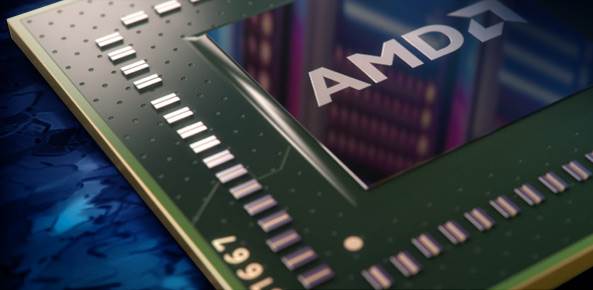It may have taken longer than expected, but AMD is finally bringing its 64-bit ARM architecture chip to data centers. Formerly known by its codename “Seattle,” the chip’s formal name is the Opteron A1100 system-on-a-chip (SoC). The company is hoping the ARM processor helps it get some traction in the data center and server markets, where chief rival Intel has dominated for years.
The chip has been in the works for a while. AMD first started promoting Seattle back in 2014, under the company’s previous CEO Rory Read, who stepped down later that year in favor of Lisa Su. As early as 2012, the company had acquired low-power server maker SeaMicro to prep the way for an ARM-based server chip.
Low-Cost, Low-Heat, Low-Power
ARM architecture chips are more frequently used in smartphones and other mobile devices, where low power consumption and heat generation are at a premium. ARM-based chips don’t usually handle the 64-bit software typically found in data centers, where the PC-based x86 architecture tends to be more common.
Utilizing standard ARM Cortex-A57 processors, AMD said the SoC’s energy efficiency will help bring down the total cost of ownership for storage, Web and networking workloads. But by using commodity processors such as the Cortex instead of developing its own custom design, AMD risks not being able to set itself apart from its competition.
Still, the company is hoping that the ARM’s low heat generation and power consumption make it compelling to enterprise clients for economic reasons.
“The ecosystem for ARM in the data center is approaching an inflection point, and the addition of AMD’s high-performance processor is another strong step forward for customers looking for a data center-class ARM solution,” said Scott Aylor, corporate vice president and general manager, Enterprise Solutions, AMD, in a statement.
Aylor added that the macro trend of convergence between networking, storage and servers is a key catalyst in this evolution. “Customers now have access to 64-bit ARM processors from the only silicon provider that also has decades of experience delivering professional enterprise and embedded products,” he said.
Networking and Storage Tasks
The SoC holds either four or eight ARM Cortex-A57 cores with 4 MB of shared Level 2 and 8 MB of shared Level 3 cache to power enterprise-class systems. The chip has been in advanced development with technology partners and customers for several quarters, giving the company plenty of time to prepare for mass production, according to AMD.
Although ARM chips aren’t known for having the raw computing power necessary to power many of the tasks typically required for data centers, the chips may be perfect for networking and storage tasks, two areas that AMD is targeting with the A1100. AMD isn’t the first company to introduce an ARM chip for servers — Applied Micro and Cavium have already released ARM processors — but the nascent market remains small, giving the company a chance to establish itself among the other players.
The company is expected to bring out more powerful ARM server chips in the future, along with more traditional x86 architecture chips.







